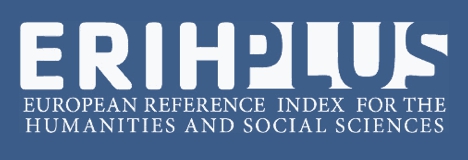Innovation in geographical education: the pedagogy of projects a possibility in the teaching of geography
Abstract
Geography teachers, in the current context, are being challenged to re-signify their pedagogical practices. In this sense, the objective is to report pedagogical practices in the teaching of Geography in a private educational institution in Taguatinga-Distrito Federal. The action research was adopted, because it is the analysis of the pedagogical practice itself. Having as procedure: observation, photographic record, bibliographic research and production of a report. The pedagogy of the projects was used as a theoretical-methodological possibility in the attempt to make the knowledge significant in the teaching of Geography for the students. Thus, the projects were built through group work, production of didactic material in the classroom, internet research, daily problematization in the construction of concepts and the appropriation of everyday reality with the objective of articulating theoretical and social practices . All this, contribute to the construction of a geographical reasoning in the students of the institution in has acted.
References
BRASIL. Ministério da Educação. Secretaria de Educação Básica. Ampliação do ensino fundamental para nove anos: 3º relatório do programa / Secretaria de Educação Básica. – Brasília: Ministério da Educação, 2006.
______. Secretaria de Educação Fundamental. Parâmetros Curriculares Nacionais: terceiro e quarto ciclos do ensino fundamental: introdução aos parâmetros curriculares nacionais. Brasília: MEC/SEF, 1998.
______. Ministério da Educação. Brasília. Base Nacional Comum Curricular, 2017.
FREIRE, Paulo. Pedagogia da autonomia: saberes necessários à prática educativa.- 52ª ed- Rio de Janeiro: Paz e Terra, 2015.
KHAOULE, Anna Maria Kovacs; Souza, Vanilton Camilo de. Desafios atuais à formação do professor de geografia. In: SILVA, Eunice da; PIRES, Lucineide Mendes (Org). Desafios da didática de geografia. Goiânia: ed. da PUC Goiás, 2013.
KAERCHER, Nestor André. A Geografia escolar na prática docente: a utopia e os obstáculos epistemológicos da Geografia Crítica. 2004, tese ( doutorado)- Faculdade de Filosofia, Letras e Ciências Humanas, Universidade de São Paulo, São Paulo, 2004.
LACOSTE, Yves. Geografia isso serve, em primeiro para fazer a guerra. 19ª ed. Campinas, SP: Papirus, 2012.
LIBÂNEO, José Carlos. Didática. São Paulo: Cortez, 2006.
_______. O dualismo perverso da escola pública brasileira: escola do conhecimento para os ricos, escola do acolhimento social para os pobres. Revista Educação e Pesquisa, São Paulo, v. 38, n. 1, p. 13-28, 2012.
KAERCHER, Nestor André. A Geografia escolar na prática docente: a utopia e os obstáculos epistemológicos da Geografia Crítica. 2004, tese (Doutorado)-Faculdade de Filosofia, Letras e Ciências Humanas, Universidade de São Paulo, São Paulo, 2004.
MORIN, Edgar et al. Educar para a era planetária: o pensamento
complexo como método de aprendizagem no erro e na incerteza humana. 2003.
MOREIRA, Marco Antonio. Aprendizagem significativa: a teoria de David Ausubel. São Paulo: Moraes, 1982.
_______. A teoria da aprendizagem significativa e suas implementações em sala de aula. Brasília: Editora da Universidade de Brasília, 2006.
SANTOS, Milton. Por uma outra globalização. São Paulo: Record, 2006.
TRIPP, David. Pesquisa-ação: uma introdução metodológica. Educação e Pesquisa, São Paulo, v. 31, n. 3, p. 443-466, set./dez. 2005.
TARDIF, Maurice. Saberes docentes e formação profissional. 14.ed.- Petrópolis, RJ: vozes, 2012.

This work is licensed under a Creative Commons Attribution-NonCommercial 4.0 International License.
Policy Proposal for Free Access Journals
Authors who publish in this journal agree to the following terms:
a. Authors retain the copyright and grant the journal the right of first publication, with the work simultaneously licensed under the Creative Commons Attribution License which allows the sharing of the work with acknowledgment of the authorship of the work and initial publication in this journal.
b. Authors are authorized to take additional contracts separately, for non-exclusive distribution of the version of the work published in this journal (eg publish in institutional repository or as a book chapter), with acknowledgment of authorship and initial publication in this journal.
c. Authors are allowed and encouraged to publish and distribute their work online (eg in institutional repositories or on their personal page) at any point before or during the editorial process, as this can generate productive changes, as well as increase the impact and The citation of published work (See The Effect of Free Access).





















